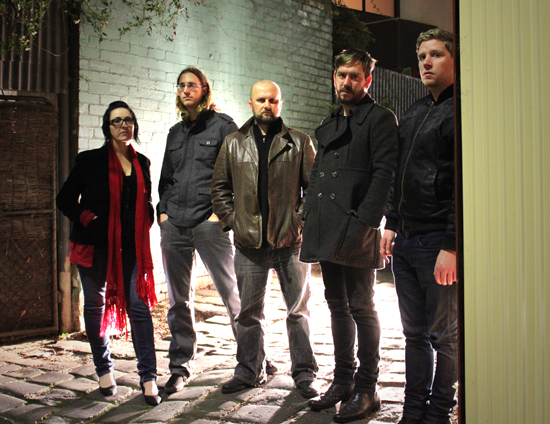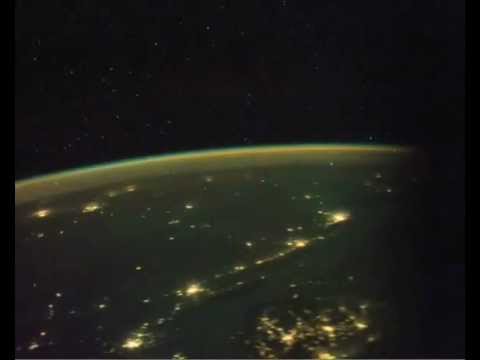Melbourne band Laura have been making noise-influenced guitar drone of a loosely post-rock-ish nature for about a decade thus far. They have toured with legendary Japanese band Mono, played shows in Japan and are supporting Boris in 2012, and yet remain relatively unknown even within Australia, let alone beyond it. There’s a certain self-perpetuation at work, as Laura have remained resolutely low profile, fostering an uncompromising approach to songwriting and closely controlling the release of their work.
With their latest album Twelve Hundred Times, released in late December last year, Laura once again created a deeply considered and developed work. Despite a protracted writing and recording process, mid-album line-up change and self-reflexive introspection and scrutiny, Laura bassist Andrew Yardley considers the making of Twelve Hundred Times to have been a ‘golden age’ in the band’s career, their least contrived work and the best embodiment of the long-held standards and values of the band.
An exhausting creative time perhaps, we observe. “Laura is a demanding beast,” Yardley concurs, mildly, as he cracks the hard shell of Laurathink like a Cronenberg bug, allowing the Quietus to peer within.
Do you think the new Laura album Twelve Hundred Times aligns closely with previous albums?
Andrew Yardley: I feel, in a way, we have come full spectrum with this album.
Full spectrum back to what?
AY: On ‘Mapping Your Dreams’ and ‘Radio Swan is Down’, we were experimenting with different structures but still wanting to maintain the flow that linear songs have. On the new album there are songs that are just ‘verse chorus, verse chorus’: at this point we had no point to prove, or the need to just try new things. All the different things we’ve been trying to achieve over the years, with the albums, and the EPs – it’s all come to a head in this last album. It is definitely the closest thing we have ever made to our vision.
And your vision is?
AY: Our vision is to make music that we want to listen to, I guess. Something that is interesting on the first listen and on the tenth listen. I think we managed in this album to have all the instruments really working closely together, rather than clashing, and creating that wall of noise we were after.
What are your hopes for the album – are you looking for greater success?
AY: We have no ambition to be famous – and I think that has really helped us. Our ambition is just to make music and that has helped us make decisions along the way that have kept the band together. For instance, decisions about whether we stay with a label or do our own thing. We’re still control freaks, and need that 100% ourselves, so it was easy to decide to attain full control of our music, even if that means less distribution.
Did the lack of record company interference make it easier to write Twelve Hundred Times?
AY: We got quite stressed making this album. We wanted it to be a certain thing and sometimes you just don’t know if you can do it. But ultimately we feel like we’ve achieved exactly what we wanted to with it and we feel really lucky about that. I think we are in this ideal headspace.
What headspace is that?
AY: With every other album and EP we’ve made, it’s always come down to a democratic vote, and inevitably people are not happy with everything. But once we were mixing this album the strange thing was that nothing came down to a vote. Ultimately every decision we made was a unanimous decision and I think that’s a rare thing. So we feel like it is this rare golden period, like the stars have aligned, and it could… go away, at any second.
What did you produce in this ‘golden headspace’?
AY: We were removing all of the emotion. Emotion was a luxury – previously emotion had been an easy thing for us to do musically, and if it came easy, it meant it was easy to replicate by other bands and we could do better. We felt like a machine.
Was emotionless what you wanted?
AY: On the new album we only wanted to let any idea happen once. We approached it with a lot less room to breathe than in the past, where we allowed things to make it on albums that were just fun things for us to do in the studio, on this album they would have been culled. In our head with this album it was like a survival instinct – maybe losing the drummer was part of it.
Survival – that’s quite a dramatic statement.
AY: In my head it was going to be the last album – I didn’t think we were going to make it through. So we just wanted to eat. We were this savage dog in the wild just trying to survive, running off instinct, doing what you know, and not trusting much. It sounds…
It actually sounds very Mad Max.
AY: Yeah, it was. Very Mad Max. For instance, I spent a lot of time in the Australian bush, Mad Max style: fishing, hunting, living off the land.
Seriously?
AY: Yeah, I’m not talking about months at a time or anything, but it was important in a strange way. It’s something I enjoyed when younger but then getting so involved in music, I stopped. Doing that again was about restoring a personal balance of time spent in the city and time spent in the bush. A few of the other guys are also getting into hiking and things like that too. It occupies a similar part of the brain to writing music, I think.
Were you unhappy with any aspect of the album in the studio?
AY: We were concerned that the album would come out very cold and sterile, but I think we got lucky, a ghost in the machine kind of thing. Looking at the album now there are these little pockets of emotion there, and we almost didn’t expect to get that. One thing we did strive for on this album, and it’s reflected in the artwork, is the idea that if you zoom in close enough you see detail that you didn’t previously know was there, and that’s like LSD or something. With LSD you start to see the details your eyes actually see, but your brain say are not necessary. So that idea of zooming in, but also zooming out as well, so musically that translated to attention to the small things, the importance of the stuff in between.
The album cover looks like a vastly magnified object of some kind. Is that part of the creative approach?
AY: The album cover is magnified volcanic ash, and we really liked how it’s one thing you’d never notice. But zooming out from that, ash in a volcanic ash cloud is quite a destructive force, and you lose complete perspective of that tiny piece of ash in this huge thing. Zooming into that tiny piece of ash, which is as unique as snow or a snowflake, there’s beauty in that.




